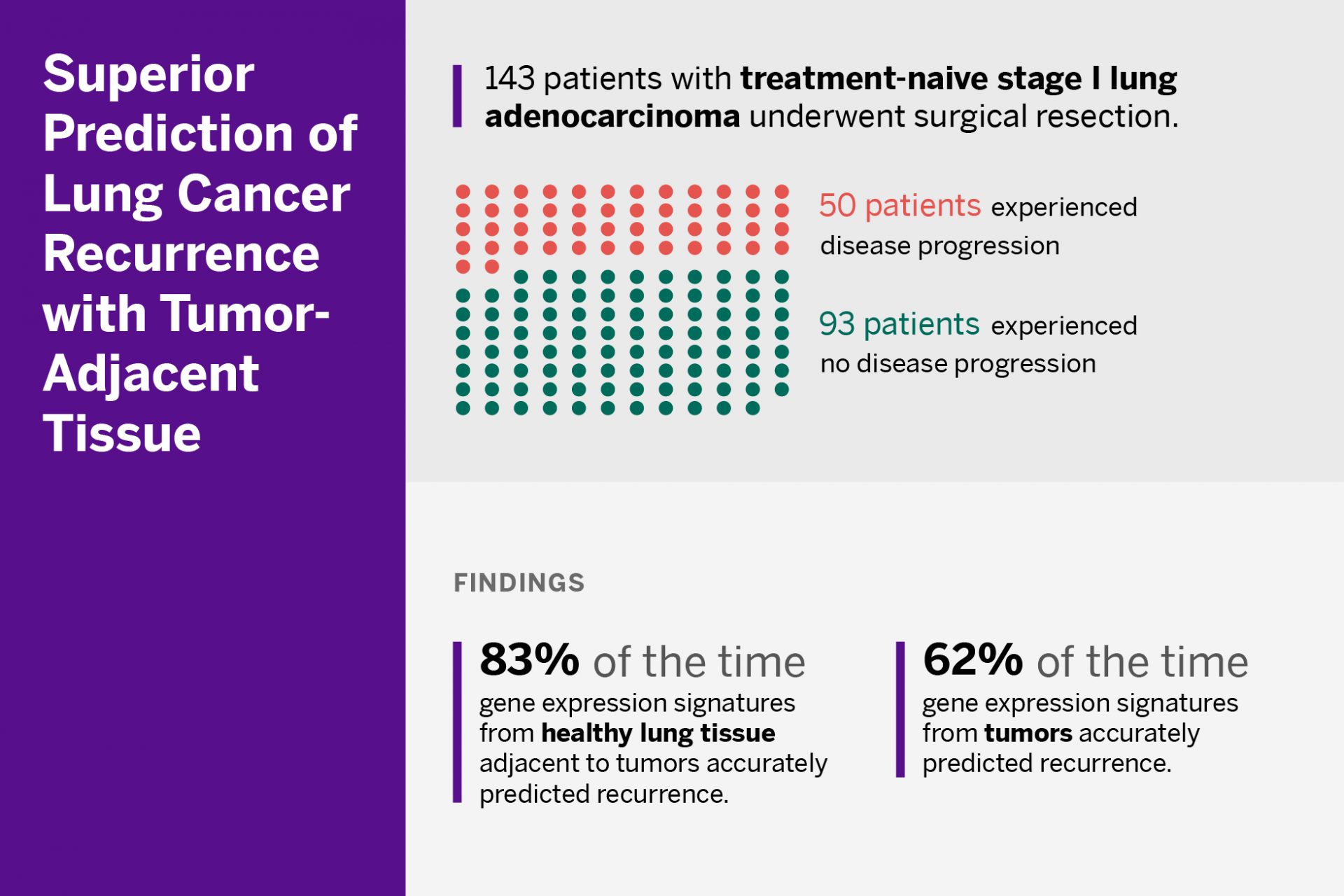The risk of disease progression for patients with early-stage lung adenocarcinoma is currently about 30 percent after surgical resection.
Transcriptomic information collected from tumor-adjacent normal (TAN) lung samples may be a better predictor of whether cancer will recur after treatment than analysis of the tumors themselves, according to new research led by investigators at NYU Langone Health and Perlmutter Cancer Center.
Analysis of RNA collected from healthy TAN tissue accurately predicted that cancer would recur 83 percent of the time, while RNA from tumors was only informative 62 percent of the time. The TAN samples were also better able to stratify patients into high- and low-risk groups.
Published in Nature Communications, the investigation is the largest to date to compare genetic material from tumors and adjacent tissue for their ability to predict recurrence.
“Our findings suggest that the pattern of gene expression in apparently healthy tissue might serve as an effective and until now elusive biomarker to help predict lung cancer recurrence in the earliest stages of the disease.”
Igor Dolgalev, PhD
“Our findings suggest that the pattern of gene expression in apparently healthy tissue might serve as an effective and until now elusive biomarker to help predict lung cancer recurrence in the earliest stages of the disease,” said study co-lead author Igor Dolgalev, PhD.
For the study, the research team collected matched tumor and TAN lung samples from 143 patients with treatment-naïve stage I lung adenocarcinoma who underwent surgical resection. The samples were obtained from NYU Langone’s biorepository of prospectively collected samples.
Machine learning models were developed to predict recurrence by identifying genes differentially expressed in patients with cancer progression versus those with no progression within five years of surgery. A multi-modal association map refined patient classification.
Analysis revealed that the expression of genes associated with inflammation in TAN lung tissue was especially useful for making predictions. This defensive response, the study authors say, may be an early warning sign of disease.
“Immunotherapy might help combat tumor growth before it becomes visible to traditional methods of detection.”
Aristotelis Tsirigos, PhD
“Immunotherapy, which bolsters the body’s immune defenses, might therefore help combat tumor growth before it becomes visible to traditional methods of detection,” said study co-senior author Aristotelis Tsirigos, PhD, director of bioinformatics research. The study team, including bioinformatician Hua Zhou, PhD, plan to use the program to prospectively assess recurrence risk in patients newly treated for early-stage lung cancer.







